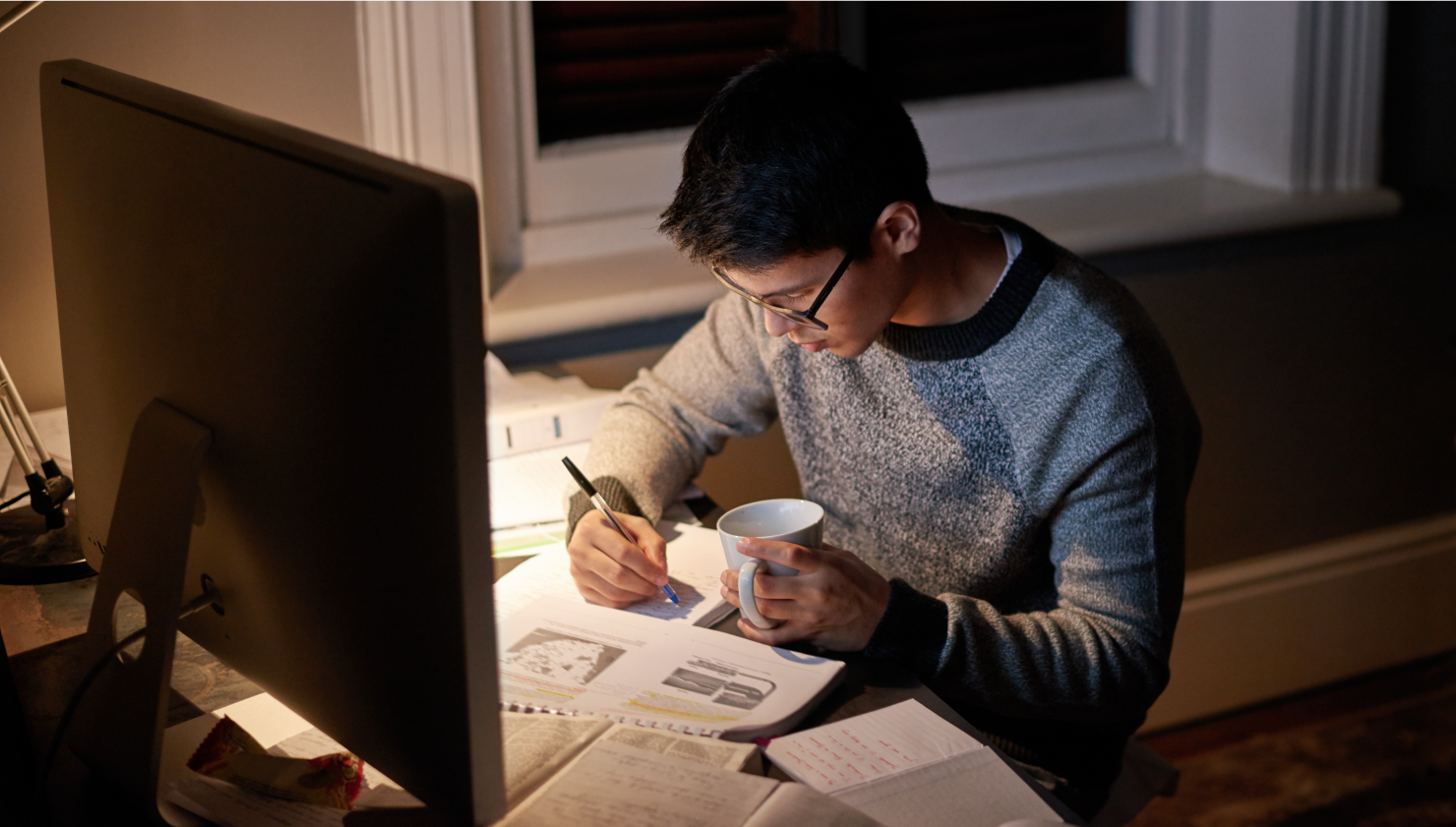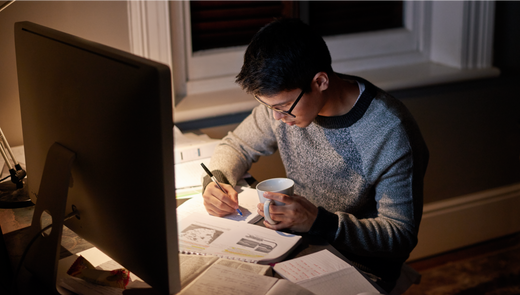
If you’re familiar with the 2010 remake of Wes Craven’s The Nightmare On Elm Street, you might remember the concept that after prolonged periods of little or no sleep, our bodies will begin to experience micro-naps - meaning our brains essentially shut down for several seconds to recharge themselves. This is a real phenomenon, and it’s our brain's way of proactively getting us to sleep, no matter the potential danger. This is just one thing that happens to our brains when we stay up all night.
What else happens to our brains when we stay up all night?
5 Effects On Our Brain After Staying Up All Night
While an all-nighter here or there may not pose any real serious risks to our health and brain function, sleep deprivation and insomnia will take their toll. They can even cause structural changes in the brain after consecutive sleepless nights.
Staying Up All Night Decreases White Matter
A study conducted in Guangzhou, China, at Guangdong No. 2 Provincial People’s Hospital, served 30 healthy volunteers and 23 patients suffering from chronic insomnia. The subjects were given a survey to assess their sleep patterns and mental status. Each participant's brain was then analyzed using advanced MRI imaging techniques.
The MRI results showed the subjects suffering from chronic insomnia had significantly less white matter “integrity” in regions of the brain including, the thalamus and the corpus callosum. These regions of the brain are responsible for regulating sleep, consciousness, and alertness and bridging the two halves of the brain together. Sleepless nights impair the white matter tissue in our brain, which helps the tissue pass messages, or signals, between different areas of gray matter within the central nervous system.
This explains why it can seem impossible to string together a cohesive thought after a restless night or why you may feel like your brain "isn't working”.
Staying Up All Night Increases The Risk of Dementia
Not receiving an ideal amount of sleep at night puts us at a higher risk of developing dementia later on in life, according to findings from a 30-year-long study. The study followed 8,000 subjects for over 25 years.
The findings showed people in their 50s and 60s who received less than 6 hours of sleep at night were 30% more likely to develop dementia later on in life than those who received 7 hours or more of sleep per night.
Staying Up All Night Increases The Risk of Mental Illness
It has been reported that people who consistently get less than 6 hours of sleep at night are more likely to suffer from mental illnesses like depression and anxiety. This creates a slippery slope for people suffering from depression and anxiety, as they are already more likely to suffer from insomnia. Creating an endless cycle of poor sleep habits can significantly hinder someone's well-being.
Brain Functions Parallel Intoxicated Brain
Matthew Walker, a professor of neuroscience and psychology at the University of California, Berkeley, explains that staying up for more than 19 hours in a row simulates how we function when we are legally intoxicated. When we reach the 16-hour mark of awakeness, our brain function begins to decline, and at the 19-hour mark, we have the same decision-making process and reaction time as an intoxicated individual.
Staying Up All Night Increases The Risk of Poor Decisions
Similar to how the brain operates at the same level as an intoxicated individual when we stay up for too long, sleep deprivation also increases our likelihood of making poor decisions. When we skip sleep, we cannot interpret events properly, leading to a higher chance that we act improperly because we cannot adequately assess the situation.
Conclusion
Sleep is an undeniably integral component of our brain's ability to function at high levels. Without adequate sleep, we are at a higher risk for poor decision-making, mental illness, and dementia.
We need to prioritize sleep, and we at MLILY want to help you do it. Our carefully crafted mattresses and pillows provide the comfort you need to fall asleep instantly to give you and your brain the restorative night sleep it's been craving.
